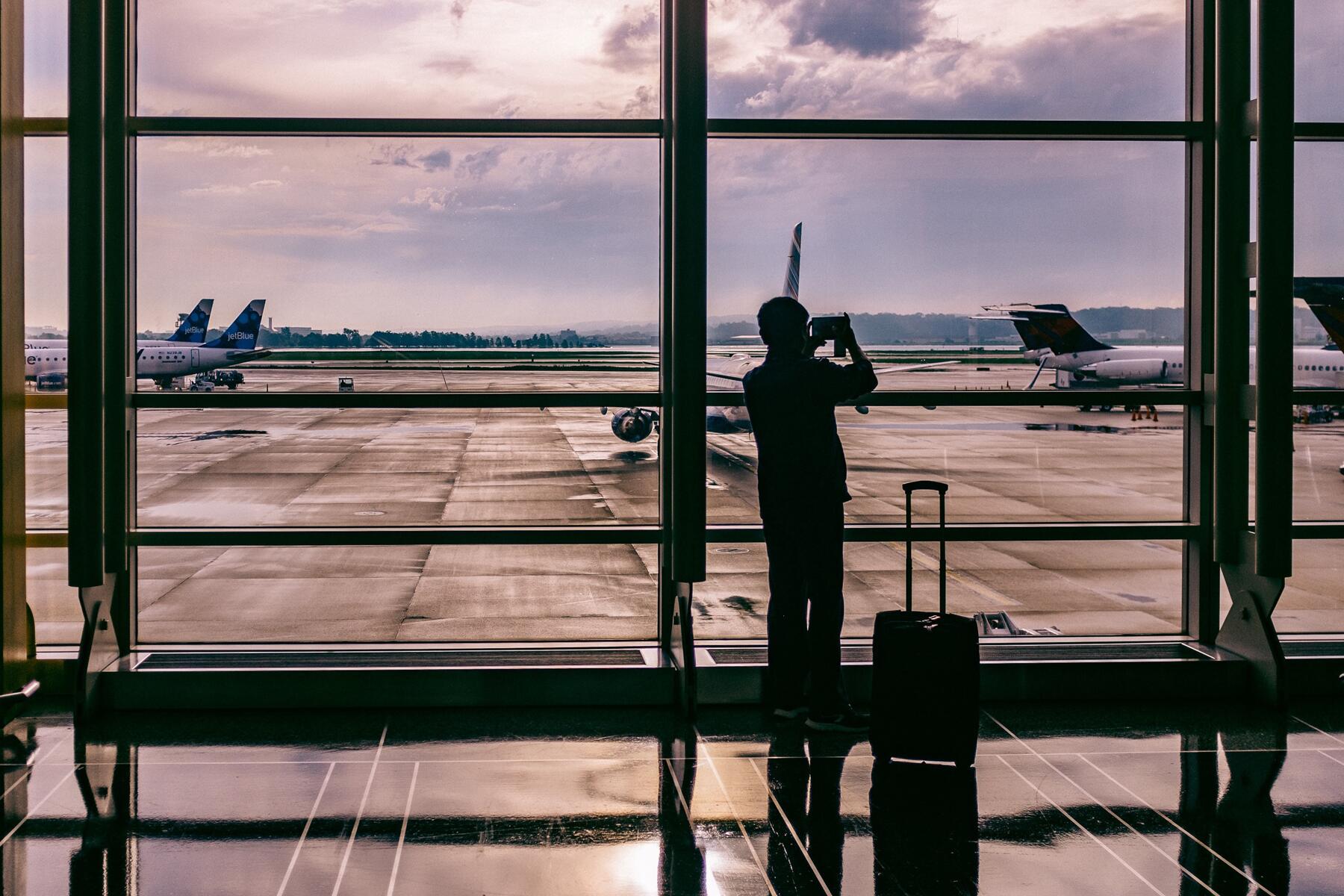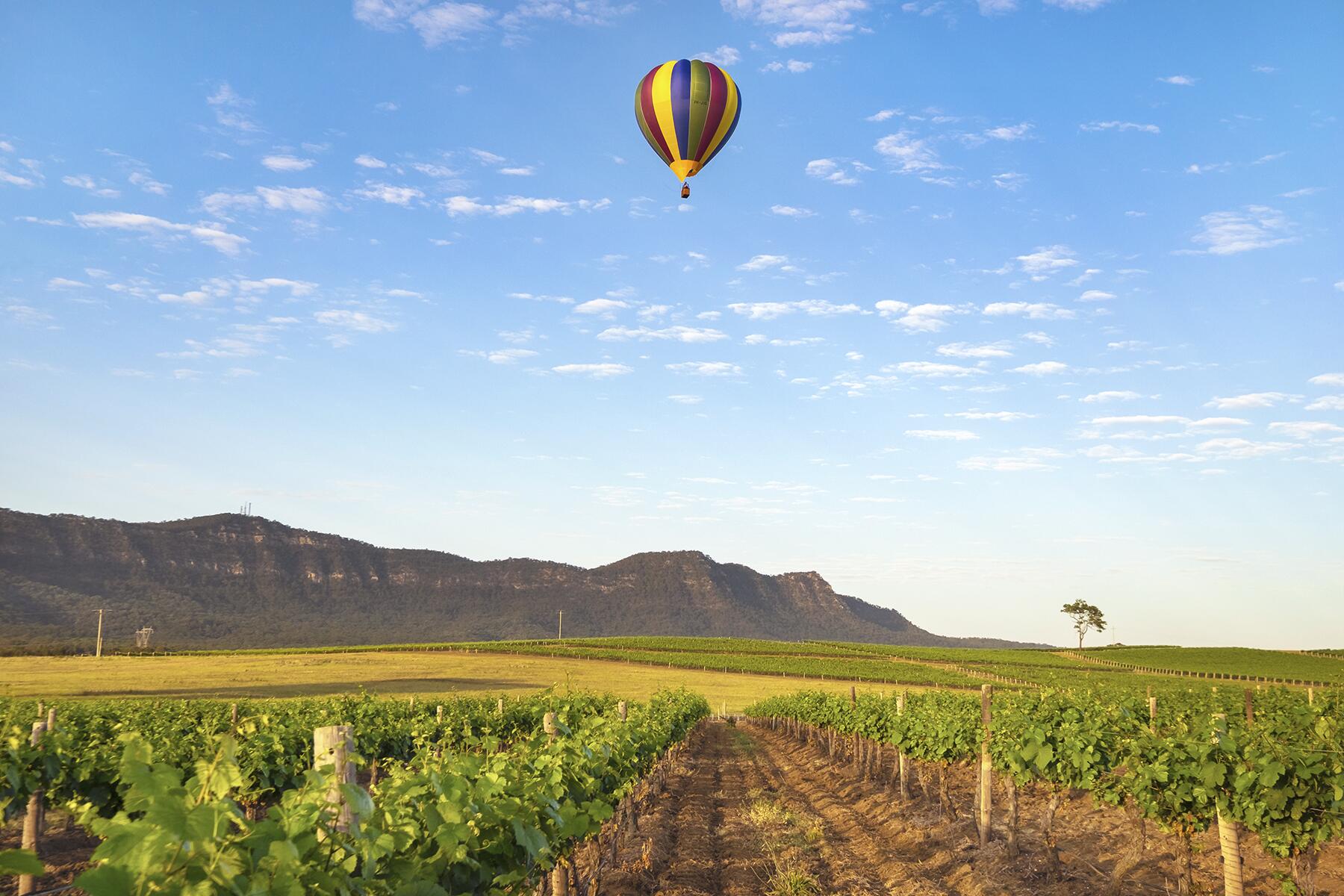Flying across the world during the coronavirus pandemic is a strange and tense experience. Doing it with your baby is truly nerve-wracking.
My baby son, Aidan, appears shocked and confused. Leaning down to talk to him is a human that looks unlike any he’s encountered during his 10 months on this planet. Her hands are inside latex gloves, her face is hidden behind a mask and goggles, and she is covered from head to toe by a protective suit. Aidan’s eyes widened the moment he first saw one of these oddly-attired Qatar Airways flight attendants.
We have only just boarded our 22-hour flight from Ireland back home to Australia and my son is already rattled. In fact, since we entered Dublin airport three hours ago, he’s been clearly discomforted by the sheer number of foreign faces entering his field of vision.
Aidan was never a shy boy. He wasn’t scared by strangers. But for the past three months, he’s barely seen anyone bar me, my wife, and my mother, as we’ve all been confined to my mother’s Ireland home during an extremely strict lockdown. It is mid-June 2020, and we’ve decided we can no longer handle the stress of being trapped in Europe as it struggles to control its severe coronavirus outbreak.
Recommended Fodor’s Video
In mid-February last year, we had flown from our hometown of Perth, Australia, to Ireland for a two-month visit with my mum. By early April, the pandemic had taken root in Ireland. Our return flight to Perth had been canceled by Emirates, which was no longer offering this service.

Terrified of traveling 9,000 miles by air in the middle of a pandemic, we decided to ride out the storm in Ireland. By early June, it had become patently clear this crisis was a long-term problem. While Ireland was in bad shape, with high infection numbers and rolling lockdowns likely to continue for months, Perth was a pandemic oasis.
This Australian city of 2.2 million people had, at that stage, gone more than two months without a community-based coronavirus case. It had been remarkably successful in quelling the virus and life there was going back to normal, with pubs, restaurants, cafes, and shops open, no masks required in public, and major sporting events up and running.
Whereas in Ireland we were fearful of taking our son outside my mum’s house, in Perth we had a park and a pristine beach across the road from our home. We didn’t want Aidan to spend many more months locked up, so we booked flights back to Perth.
But we dreaded that trip. My wife and I both had waking nightmares about all three of us being exposed to the virus. We feared arriving in Perth with a cough that developed into an infection and eventually, a serious case of coronavirus.
Whereas in Ireland we were fearful of taking our son outside my mum’s house, in Perth we had a park and a pristine beach across the road from our home. We didn’t want Aidan to spend many more months locked up, so we booked flights back to Perth.
Dublin Airport was a ghost village when we arrived. The check-in desks were all but empty, there was next to no line at immigration, and most of the shops and cafes were closed. Fellow travelers kept their heads down as if COVID-19 could be communicated via eye contact. Those who did look up seemed surprised to see us traveling with a baby.
It was hard to suppress the guilt I felt about exposing Aidan to this dangerous situation. I second-guessed our decision over and over and over again. We were particularly worried about his wellbeing due to the fact he was too young to wear a mask.
Onboard the plane we treated our seats as if they were contaminated. Using antiseptic wipes, we scrubbed every hard surface around us with such vigor that other passengers were giving us strange looks. By the time Aidan finally fell asleep in the bassinet attached to the wall in front of our seats, my wife and I were mentally and physically exhausted.
Yet neither of us could sleep. We kept watching Aidan, worried that he would wake up and start rubbing his hands on surfaces. After seven hours of this paranoid existence, our flight landed at Doha in Qatar. It was unnerving to find that Doha Airport was far busier than Dublin. We stood back, waited for the crowds to thin out, and then found an empty corner to wait for our flight to Perth.
When eventually we touched down in Australia, my wife and I still had barely slept due to anxiety. At the end of this arduous air journey waited a mandatory two-week hotel quarantine. This strict policy was the main reason Perth had controlled the coronavirus so well and has continued to do so through into 2021.
Since April last year, only residents or citizens have been allowed to enter Australia, and those travelers are escorted by police from the airport directly to hotel quarantine. Those in quarantine must test negative to COVID-19 at the end of their stay before being released into the community.
When the door of our Perth hotel room closed behind us, we knew we were not allowed to step foot outside for the next two weeks. Not only could we not leave our rooms, even for exercise, but the windows in our rooms did not open. No fresh air for 14 days.

Fortunately, the accommodation we were provided free of charge at the Westin Hotel was spacious and luxurious. We had two connecting rooms, each of which had floor-to-ceiling windows with fantastic views across Perth. Aidan loved sitting in front of those windows. He would squeal when he spotted a bird and point at passing trains.
While Aidan enjoyed this experience, my wife and I found it odd and depressing. To peer out at a city you can’t join. To see people strolling along streets, casually riding bikes, or sitting in parks. Gradually, Aidan’s mood changed. In the second week of quarantine, he became increasingly lethargic and ill-tempered.
When he got upset, we struggled to calm him down. None of the unusual tricks worked—not cuddles, not storytime, not breastfeeding, not his favorite cartoons. This curious experience had become too much for him. Perhaps it was the lack of fresh air, perhaps it was the foreign environment, perhaps it was the restrictions on his movement.
Maybe it was all of that and more. He couldn’t tell us what was wrong. That didn’t stop us from asking. My wife and I must have posed that question to him hundreds of times between leaving Dublin and finishing quarantine. On day 12 of quarantine, all three of us were tested for COVID-19. On Day 14, our results came back negative and we rejoiced.
That evening we were allowed to go home. As we were dropped outside our house, and the ocean air ruffled Aidan’s hair, our son looked happy and relaxed for the first time in far too long. He was too young to realize it, but he’d just successfully traversed the globe during a pandemic.



